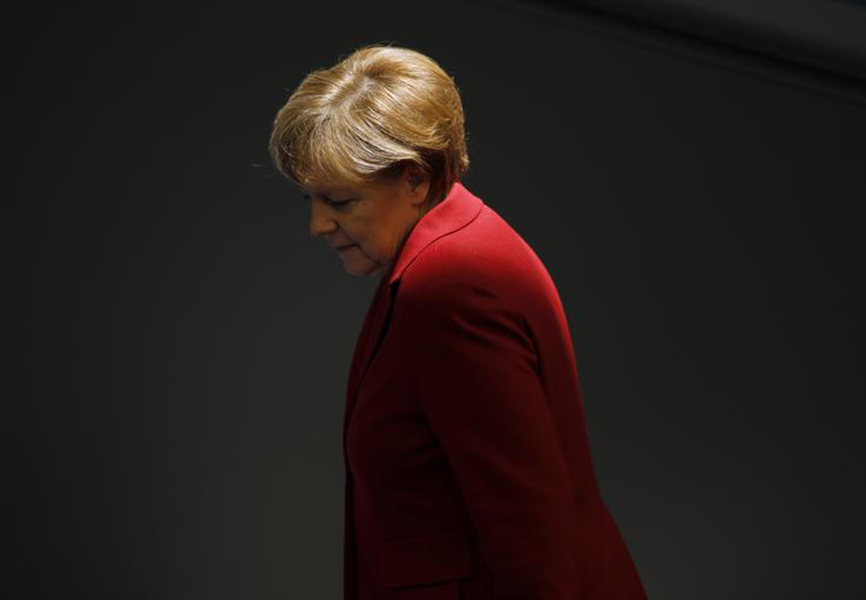THIS YEAR WILL BRING ANOTHER WAVE of political risks in Europe, and some of them will surely materialize. Disputes over Brexit will distract and deepen mistrust between the UK and Europe; French elections could lead to the far-right euroskeptic National Front taking power; the Greek crisis will continue to simmer without resolution; Turkey's slide toward authoritarianism will continue while the country's refugee deal with the EU could easily come apart; and large-scale terrorism remains a far greater risk than anywhere else in the developed world.
Since the Eurozone crisis, Europe has benefited from the stalwart leadership of Chancellor Angela Merkel. Could the Europeans have resolved their financial crises without the Germans forcing a solution? Would the Eurozone even have stayed together? It's hard to imagine.
This year, we'll have to. Merkel has faced a series of challenges that continue to undermine her leadership. First, a refugee policy that lacks durable support at home and across Europe, a problem made worse by terrorist attacks and domestic incidents blamed on refugees. A series of corporate crises involving some of Germany's most important companies, such as Volkswagen, Deutsche Bank, and Lufthansa. Finally, the rise of populism has undermined support for her dream of a stronger Europe—both with stunning electoral victories across eastern Europe and in referenda in the UK and Italy and the rise of Germany's Alternative for Deutschland (AfD) party.
Could the Europeans have resolved their financial crises without the Germans forcing a solution?
Of all the leaders in Europe, Merkel is the safest bet to win reelection this year. There's no strong challenger, and despite the obvious dangers of growing nationalism in the country, populism in Germany doesn't have the same economic implications it does across the continent, since the benefits of EU and Eurozone membership are clear to most Germans. So despite just how wrong the polls have been in recent major electoral contests across the developed world, Merkel will win a fourth consecutive term. But the need to appease domestic critics this year will leave her a diminished figure, impacting the quality of her leadership both at home and in the EU.
Merkel's geopolitical clout is eroding just as quickly. Obama didn't always deliver on his commitments, but the relationship was personally warm and diplomatically well aligned. Not so with Trump, who cares little for the values that are core to Merkel's leadership. When the US-Russia relationship comes back on line, other European states will see an opportunity to rebuild ties with Moscow. Brexit will remove British support for her leadership. The Italians, for a brief moment a stronger pro-EU force, will return to weak governments. In France, if Marine Le Pen is elected president and calls a referendum on EU membership, her government will become Merkel's antagonist. If Francois Fillon wins, Merkel will be dealing with a major ally that tilts toward Putin.
Europe has never needed a strong Merkel more. In 2017, she'll be unavailable for the role.

 German Chancellor Angela Merkel attends a debate at the Bundestag, the lower house of parliament, in Berlin. REUTERS/Fabrizio Bensch
German Chancellor Angela Merkel attends a debate at the Bundestag, the lower house of parliament, in Berlin. REUTERS/Fabrizio Bensch